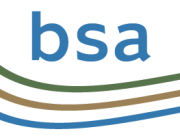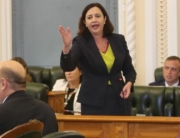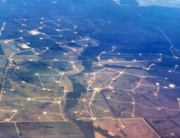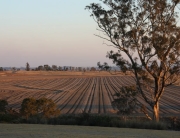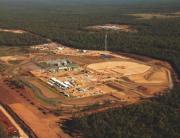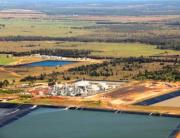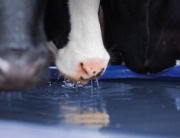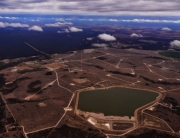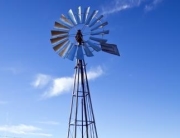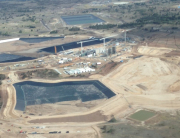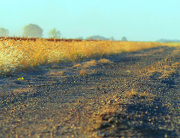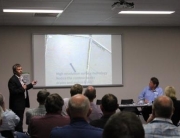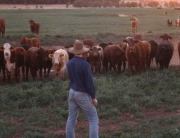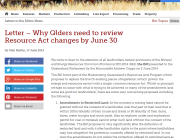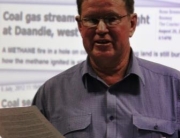The University of Queensland (UQ) is conducting a research project to better estimate the amount of water extracted by groundwater bores in and around the Surat Cumulative Management Area (CMA). This work is being undertaken to independently improve the accuracy of groundwater flow models used by government and the coal seam gas (CSG) industry. They have assembled an independent, multidisciplinary team from UQ to undertake this important research which will help to better assess the potential impacts of groundwater extraction by the CSG industry. Find out more on this information sheet>
FOLLOWING IS FURTHER INFORMATION ABOUT THE PROJECT provided by Mr Ian Callow, Research Manager, Centre for Water in the Minerals Industry, Sustainable Minerals Institute, The University of Queensland
What are the project aims?
The University of Queensland (UQ) is conducting a research project to better estimate the amount of water extracted by groundwater bores in and around the Surat Cumulative Management Area (CMA). This work is being undertaken to independently improve the accuracy of groundwater flow models used by government and the coal seam gas (CSG) industry. We have assembled an independent, multidisciplinary team from UQ to undertake this important research which will help to better assess the potential impacts of groundwater extraction by the CSG industry.
Who is involved?
The project is being led by Dr Greg Keir, a Postdoctoral Research Fellow at UQ. Greg has a background in civil and environmental engineering, with nearly ten years’ experience in water resource engineering primarily in north Queensland. Greg’s expertise in advanced statistical and spatial modelling forms the technical backbone of the project. As well as managing the overall project, Greg is responsible for developing the statistical models which will be used to provide robust estimates of groundwater extraction. These models will use cutting-edge statistical techniques to incorporate estimates of groundwater use from various sources, such as metering, landholder survey, and soils and climate data. Greg is also responsible for overseeing the landholder survey and bore metering programs, including installation of temporary flow meters.
Mr Ian Callow, a Research Manager at UQ, has qualifications in both agricultural engineering and hydrogeology with over 25 years’ experience providing groundwater advice to the rural, agro-industrial, resource and government sectors. Ian has an in-depth knowledge of the Surat Basin area having assessed, designed and supervised over 50 bores in the basin including those for the Kogan Creek Power Station, Wilkie Creek Mine, Tong Park and Lapunyah Piggeries and Brindley Park, Sandalwood and Bottletree Feedlots. In many cases establishment of these water supplies required extensive engagement with government to secure the necessary groundwater entitlements. Ian will act as the landholder engagement lead for the project and his expert knowledge and experience will be used to guide the landholder survey and bore metering programs, as well as provide expert advice to feed in to and ‘ground truth’ the statistical models developed in the project.
Ms Nena Bulovic, a Research Assistant at UQ, has qualifications in both civil engineering and environmental science, with more than 5 years’ experience in surface water and groundwater research across eastern Australia. Nena is very familiar with both the Surat Basin and northern Murray-Darling Basin where she has applied remote sensing and field study techniques to investigate various water resource and environmental issues. Nena will be using her extensive technical background and specific regional experience to provide key technical inputs to both the statistical modelling and data collection aspects of the project, as well as assisting with the field implementation of the bore metering program.
How is this study being funded?
This study is being funded by the Centre for Coal Seam Gas (CCSG). The CCSG is a research funding centre within The University of Queensland (UQ) initiated in 2011 through an agreement between UQ and companies active in the development of Queensland’s coal seam gas (CSG) resources. The contributing companies are QGC/BG, Santos, Arrow Energy and APLNG.
These industry members have provided untied funding to the amount of $17.5M for a period of five years, with UQ providing an additional $5M over the same period. This means that while members can provide input into which research projects are undertaken, UQ has the final decision whether a particular topic of research is actively pursued or otherwise.
Is this an independent study?
Yes. The research is being undertaken by expert staff from the Centre for Water in the Minerals Industry (CWiMI), part of UQ’s Sustainable Minerals Institute.
Through an in-depth knowledge of the potential impacts of the CSG industry in Queensland, CWiMI researchers independently identified the need for an improved understanding of water use in the Surat Cumulative Management Area (CMA) to support management decisions, and proposed this research study based on this need. This proposed research topic was supported by government bodies such as OGIA and DNRM, as well as by the member companies of the CCSG. The research study was then funded by CCSG in 2013.
To ensure independence, researchers working on studies funded by the CCSG are bound by the same policies and procedures as other researchers within UQ, which are designed to ensure the integrity of research. You can view these policies at: http://ppl.app.uq.edu.au/content/4.-research-and-research-training. Researchers across the University are encouraged to publish in national and international peer-reviewed journals and industry magazines. The Australian Code for the Responsible Conduct of Research outlines expectations and responsibilities of researchers to further ensure independent and rigorous investigations.
Will the results be publicly available?
The project will result in:
- New statistical techniques for the estimation of groundwater use in complex and data-poor systems;
- Reports and academic articles describing these new techniques; and
- Use of the techniques to produce bore-by-bore estimates of likely water extraction in the Surat CMA, for use in Surat Basin groundwater models developed by government and industry.
All of these outputs will be made publicly available.
Data provided by individual participants in the study (including landholders, councils, etc.) and details of their participation will be kept confidential by UQ, unless otherwise specifically authorised by individual participants. This plan has been formally documented and received clearance from the UQ Ethics Committee.
Ay inquiries about the project should be directed to the research team on 07 3346 4012 or email:
Mr Ian Callow i.callow@uq.edu.au
Dr Greg Keir g.keir1@uq.edu.au
Ms Nena Bulovic n.bulovic@uq.edu.au

